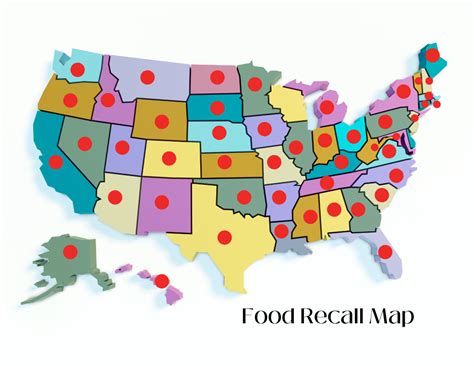
Tomatoes sold in Florida, North Carolina, and South Carolina are under recall due to potential Salmonella contamination, prompting a warning from the Food and Drug Administration (FDA).
The FDA is alerting consumers in Florida, North Carolina, and South Carolina about a voluntary recall of certain tomatoes due to potential Salmonella contamination. The potentially affected tomatoes were repacked and distributed by Fresh Start Produce Sales, Inc., of Delray, Florida. The FDA is currently working to determine the source of the contamination and the extent of the distribution. While no illnesses have been definitively linked to these tomatoes to date, Salmonella can cause serious and sometimes fatal infections, especially in young children, frail or elderly people, and others with weakened immune systems. Consumers who have recently purchased tomatoes in these states should check product labels and seek medical attention if they experience symptoms of Salmonella infection.
Details of the Recall
Fresh Start Produce Sales Inc. initiated the voluntary recall after a routine sampling detected Salmonella in a specific batch of tomatoes. Although the company has not released specific brand names or types of tomatoes affected, they urge retailers and consumers to exercise caution. The recalled tomatoes were shipped between May 4, 2024, and May 28, 2024, raising concerns about the potential for widespread exposure.
The FDA is collaborating with Fresh Start Produce Sales Inc. to trace the distribution path of the tomatoes, aiming to identify all locations where the contaminated produce may have been sold. This trace-back investigation is a crucial step in containing the outbreak and preventing further illnesses. As of now, the recall is limited to the three states mentioned, but the FDA is not ruling out the possibility of expanding the recall if the investigation reveals a broader distribution network.
Consumers and retailers are advised to dispose of any potentially affected tomatoes or return them to the place of purchase for a full refund. Washing the tomatoes will not eliminate the risk of Salmonella infection. It is crucial to handle the recalled tomatoes with care, avoiding cross-contamination with other foods or surfaces.
Symptoms of Salmonella Infection
Salmonella infection, or salmonellosis, is a common bacterial disease that affects the intestinal tract. Symptoms typically develop 12 to 72 hours after infection and can include diarrhea, fever, and abdominal cramps. Most people recover within a week without medical treatment. However, in some cases, the infection can spread from the intestines to the bloodstream and other parts of the body, requiring hospitalization and antibiotic treatment.
According to the Centers for Disease Control and Prevention (CDC), an estimated 1.35 million cases of Salmonella infection occur in the United States each year, resulting in approximately 26,500 hospitalizations and 420 deaths. Children under the age of 5, adults over the age of 65, and people with weakened immune systems are at higher risk of developing severe complications from Salmonella infection.
“Symptoms of Salmonella include diarrhea, fever, and abdominal cramps,” warns the FDA. “Consumers experiencing these symptoms after consuming tomatoes should seek medical attention immediately.”
Preventive Measures
To prevent Salmonella infection, the FDA recommends following these safe food handling practices:
- Wash your hands thoroughly with soap and water before and after handling fresh produce.
- Wash fruits and vegetables under running water, even if you plan to peel them.
- Use a clean vegetable brush to scrub firm produce like tomatoes, cucumbers, and melons.
- Separate raw meat, poultry, and seafood from fresh produce in your shopping cart and refrigerator.
- Use separate cutting boards and utensils for raw meat and produce.
- Cook food to safe internal temperatures.
- Refrigerate perishable foods promptly.
The Broader Context of Food Recalls
Food recalls are a common occurrence in the United States, reflecting the complex and interconnected nature of the food supply chain. Recalls can be triggered by various factors, including contamination with bacteria, viruses, or parasites; the presence of undeclared allergens; or manufacturing defects.
The FDA and the U.S. Department of Agriculture (USDA) are the primary federal agencies responsible for overseeing food safety and initiating recalls. The FDA regulates most food products, while the USDA regulates meat, poultry, and processed egg products. Both agencies work closely with food manufacturers and distributors to ensure that recalled products are removed from the market as quickly and efficiently as possible.
Food recalls can have significant economic and reputational consequences for food companies. In addition to the direct costs of removing contaminated products from the market, companies may face lawsuits, regulatory fines, and damage to their brand image.
Impact on Consumers
The tomato recall has raised concerns among consumers about the safety of fresh produce. Many people rely on tomatoes as a staple ingredient in their diets, and the recall may lead some to avoid tomatoes altogether.
“I’m definitely going to be more careful about buying tomatoes in the future,” said one consumer in North Carolina. “I’ll be checking the labels more closely and maybe even switching to canned tomatoes for a while.”
The recall also highlights the importance of staying informed about food safety issues. Consumers can sign up for email alerts from the FDA and the USDA to receive notifications about recalls and other food safety warnings.
The Role of the FDA
The FDA plays a critical role in protecting the public from foodborne illnesses. The agency is responsible for setting food safety standards, inspecting food production facilities, and investigating outbreaks of foodborne illness.
The FDA’s Food Safety Modernization Act (FSMA), signed into law in 2011, is the most comprehensive reform of food safety laws in more than 70 years. FSMA aims to prevent foodborne illnesses by shifting the focus from responding to outbreaks to preventing them in the first place.
Under FSMA, food companies are required to implement preventive controls to identify and address potential hazards in their food production processes. The FDA also has the authority to conduct more frequent inspections of food facilities and to issue mandatory recalls of contaminated food products.
Expert Opinions
Food safety experts emphasize the importance of following safe food handling practices to minimize the risk of foodborne illness.
“Washing your hands thoroughly is one of the most important things you can do to prevent foodborne illness,” says Dr. Sarah Lewis, a food safety specialist at a major university. “It’s also important to cook food to safe internal temperatures and to refrigerate perishable foods promptly.”
Dr. Lewis also advises consumers to stay informed about food recalls and to take appropriate action if they have purchased a recalled product.
“If you think you may have purchased a recalled product, don’t eat it,” she says. “Dispose of it immediately or return it to the store for a refund.”
Future Outlook
The FDA’s investigation into the tomato recall is ongoing. The agency is working to identify the source of the contamination and to prevent future outbreaks.
In the meantime, consumers in Florida, North Carolina, and South Carolina are advised to exercise caution when purchasing tomatoes. It is important to check product labels carefully and to follow safe food handling practices.
The tomato recall serves as a reminder of the importance of food safety and the need for continued vigilance to protect the public from foodborne illnesses. The FDA will likely implement stricter measures and guidelines to prevent similar incidents from happening in the future. This could include enhanced testing protocols, more frequent inspections, and increased collaboration with food producers to ensure adherence to the highest safety standards. The agency is also expected to continue its public awareness campaigns to educate consumers about safe food handling practices and the importance of staying informed about potential food safety risks.
Detailed Analysis of Salmonella and Its Impact
Salmonella is a group of bacteria that can cause food poisoning, a common illness characterized by gastrointestinal distress. The bacteria are typically found in the intestines of animals, including poultry, cattle, and reptiles. Humans can become infected by consuming contaminated food or water, or by coming into contact with infected animals or their feces.
The pathogenesis of Salmonella infection involves the bacteria entering the body through the mouth and traveling to the small intestine. Once there, the bacteria attach to the cells lining the intestinal wall and begin to multiply. Salmonella produces toxins that damage the intestinal cells, leading to inflammation and fluid secretion. This results in the characteristic symptoms of diarrhea, abdominal cramps, and fever.
While most people recover from Salmonella infection within a week, the illness can be more severe in certain populations. Infants, young children, the elderly, and individuals with weakened immune systems are at higher risk of developing complications such as dehydration, bacteremia (bloodstream infection), and reactive arthritis. In rare cases, Salmonella infection can lead to death.
The severity of Salmonella infection depends on several factors, including the strain of Salmonella involved, the amount of bacteria consumed, and the individual’s overall health. Some strains of Salmonella are more virulent than others, meaning they are more likely to cause severe illness. The more bacteria consumed, the greater the risk of infection and the more severe the symptoms. Individuals with weakened immune systems are less able to fight off the infection, making them more vulnerable to complications.
Diagnosis of Salmonella infection typically involves culturing a stool sample to identify the presence of the bacteria. Treatment usually consists of supportive care, such as fluid replacement and rest. Antibiotics are generally not recommended for uncomplicated Salmonella infection, as they can prolong the duration of shedding of the bacteria in the stool and increase the risk of antibiotic resistance. However, antibiotics may be necessary for severe infections or for individuals at high risk of complications.
Prevention of Salmonella infection involves following safe food handling practices, such as washing hands thoroughly, cooking food to safe internal temperatures, and avoiding cross-contamination between raw and cooked foods. It is also important to avoid consuming raw or undercooked meat, poultry, eggs, and seafood, as these foods are common sources of Salmonella.
Fresh Start Produce Sales Inc.’s Response and Reputation Management
Fresh Start Produce Sales Inc.’s swift action in initiating a voluntary recall demonstrates a commitment to consumer safety. However, the company faces the challenge of managing its reputation in the wake of the recall. The company’s response will be critical in determining the long-term impact on its brand image and customer loyalty.
Transparency and open communication are essential during a food recall. Fresh Start Produce Sales Inc. should provide regular updates to the public about the progress of the investigation, the extent of the recall, and the steps being taken to prevent future incidents. The company should also be responsive to consumer inquiries and complaints.
In addition to addressing the immediate crisis, Fresh Start Produce Sales Inc. should also take steps to enhance its food safety protocols. This may involve implementing more rigorous testing procedures, improving sanitation practices, and providing additional training to employees. The company should also work closely with its suppliers to ensure that they are following safe food handling practices.
The company’s reputation management strategy should focus on rebuilding trust with consumers. This may involve launching a public awareness campaign to highlight the company’s commitment to food safety. The company should also consider offering compensation to consumers who have been affected by the recall.
The Economic Impact of the Tomato Recall
The tomato recall has significant economic implications for the tomato industry, retailers, and consumers. The recall will likely lead to a decrease in demand for tomatoes, as consumers may be hesitant to purchase the product. This could result in lower prices for tomatoes and financial losses for tomato growers and distributors.
Retailers may also experience losses due to the recall. They will need to remove the recalled tomatoes from their shelves and dispose of them. They may also face lawsuits from consumers who have been sickened by the contaminated tomatoes.
Consumers may also incur costs as a result of the recall. They may need to purchase alternative food products to replace the tomatoes they can no longer consume. They may also incur medical expenses if they become ill from consuming the contaminated tomatoes.
The overall economic impact of the tomato recall will depend on the extent of the recall, the duration of the recall, and the severity of the illnesses caused by the contaminated tomatoes.
Legal Implications of the Food Recall
The tomato recall has significant legal implications for Fresh Start Produce Sales Inc. and other parties involved in the production and distribution of the contaminated tomatoes. The company could face lawsuits from consumers who have been sickened by the tomatoes. These lawsuits could allege negligence, product liability, and breach of warranty.
The FDA could also take enforcement action against Fresh Start Produce Sales Inc. if the agency determines that the company violated food safety regulations. The FDA could issue warning letters, impose civil penalties, or even seek criminal charges.
Other parties involved in the production and distribution of the contaminated tomatoes could also face legal liability. This could include tomato growers, processors, and distributors.
The legal outcome of the tomato recall will depend on the specific facts of the case and the applicable laws and regulations.
The Impact on International Trade
While the immediate impact is focused on domestic markets, a significant recall like this can have ripple effects on international trade, particularly if Fresh Start Produce Sales Inc. exports tomatoes. Importing countries might impose stricter inspection regimes on produce from the affected states or even temporarily ban tomato imports altogether until the source of the contamination is definitively identified and addressed. This can lead to significant economic losses for exporters and disrupt international supply chains. Furthermore, international buyers may lose confidence in the safety and quality of U.S. produce, potentially leading to a long-term shift in sourcing strategies towards other countries. The FDA often collaborates with international regulatory bodies to share information and coordinate responses to such incidents, highlighting the interconnectedness of the global food system.
The Psychological Impact on Consumers and Farmers
Beyond the physical health and economic consequences, food recalls can have a significant psychological impact on both consumers and farmers. Consumers may experience anxiety and fear about the safety of the food they consume, leading to a loss of trust in the food system. This anxiety can manifest as increased scrutiny of product labels, heightened concerns about food preparation methods, and even avoidance of certain food products altogether.
Farmers, on the other hand, may experience stress and emotional distress due to the economic losses and reputational damage associated with a recall. They may also feel a sense of responsibility and guilt if their products have caused illness or harm to consumers. The emotional toll of a recall can be particularly devastating for small-scale farmers who may not have the resources to weather the financial storm.
The Role of Technology in Enhancing Food Safety
Technology plays an increasingly important role in enhancing food safety and preventing foodborne illnesses. Advances in areas such as rapid testing, traceability, and data analytics are helping to improve the detection and response to food safety incidents.
Rapid testing technologies can be used to quickly detect the presence of pathogens in food products. These technologies can provide results in a matter of hours, allowing for faster identification and removal of contaminated products from the market.
Traceability systems allow for the tracking of food products from farm to fork. These systems can help to identify the source of contamination in the event of a foodborne illness outbreak.
Data analytics can be used to identify patterns and trends in food safety data. This information can be used to develop targeted interventions to prevent foodborne illnesses.
The adoption of these technologies can help to improve food safety and reduce the risk of foodborne illnesses.
FAQ: Tomato Recall and Salmonella Contamination
1. Which tomatoes are affected by the recall, and where were they sold?
The recall involves tomatoes repacked and distributed by Fresh Start Produce Sales Inc. They were sold in Florida, North Carolina, and South Carolina. While specific brands and types haven’t been released, it’s advisable to check with retailers where you purchased tomatoes between May 4, 2024, and May 28, 2024. Contact the retailer for clarification if you are unsure of the source of your tomatoes.
2. What should I do if I have purchased tomatoes that might be part of the recall?
The FDA recommends that consumers who have purchased tomatoes in Florida, North Carolina, or South Carolina between May 4 and May 28, 2024, should dispose of them immediately or return them to the place of purchase for a full refund. Do not consume the tomatoes, even if they look and smell normal. Washing the tomatoes will not eliminate the risk of Salmonella contamination.
3. What are the symptoms of Salmonella infection, and when should I seek medical attention?
Symptoms of Salmonella infection include diarrhea, fever, and abdominal cramps. These symptoms typically appear 12 to 72 hours after consuming contaminated food. While most people recover within a week, it’s important to seek medical attention if you experience severe symptoms such as high fever, bloody diarrhea, or prolonged vomiting, especially if you are in a high-risk group (young children, elderly individuals, or those with weakened immune systems).
4. How can I prevent Salmonella infection in the future?
To prevent Salmonella infection, follow these safe food handling practices: wash your hands thoroughly with soap and water before and after handling fresh produce; wash fruits and vegetables under running water; use a clean vegetable brush to scrub firm produce; separate raw meat, poultry, and seafood from fresh produce in your shopping cart and refrigerator; use separate cutting boards and utensils for raw meat and produce; cook food to safe internal temperatures; and refrigerate perishable foods promptly.
5. Is this tomato recall an isolated incident, or are there other food safety concerns I should be aware of?
Food recalls are a fairly common occurrence due to the complexity of the food supply chain. While this tomato recall is specific to certain states and distributors, it’s a good reminder to stay informed about food safety issues. You can sign up for email alerts from the FDA and the USDA to receive notifications about recalls and other food safety warnings. Always practice safe food handling techniques to minimize your risk of foodborne illness. You can also check the FDA and CDC websites regularly for updates on food safety alerts and outbreaks.
The Importance of Traceability in the Food Supply Chain
This tomato recall highlights the critical importance of robust traceability systems within the food supply chain. Traceability allows authorities and companies to quickly identify the source of contamination and prevent further spread of illness. In the absence of effective traceability, it becomes significantly more challenging to pinpoint the origin of the problem and remove affected products from the market in a timely manner. This delay can lead to more widespread illness and greater economic losses.
Ideally, a traceability system should provide a complete record of a product’s journey, from the farm where it was grown to the retail outlet where it was sold. This record should include information such as the farm’s location, the date of harvest, the transportation methods used, and the names of all parties involved in the distribution process.
While many food companies have implemented some form of traceability, there is still room for improvement. Many systems are fragmented and lack interoperability, making it difficult to share information across the supply chain. The FDA’s Food Safety Modernization Act (FSMA) includes provisions aimed at improving traceability, but further efforts are needed to ensure that all food products can be traced quickly and efficiently.
Blockchain technology has emerged as a promising solution for enhancing traceability in the food supply chain. Blockchain is a decentralized, tamper-proof ledger that can be used to record information about food products in a secure and transparent manner. By using blockchain, all parties involved in the supply chain can have access to the same information, making it easier to track products and identify the source of contamination.
The Role of Consumers in Promoting Food Safety
While government agencies and food companies have a primary responsibility for ensuring food safety, consumers also play a crucial role. By following safe food handling practices, consumers can significantly reduce their risk of foodborne illness.
Here are some additional tips for consumers to promote food safety:
- Read food labels carefully and pay attention to any recall notices or warnings.
- Check the expiration dates of food products and discard any products that are past their expiration date.
- Store food properly to prevent spoilage and contamination.
- Cook food to safe internal temperatures to kill harmful bacteria.
- Avoid eating raw or undercooked meat, poultry, eggs, and seafood.
- Be aware of the risk of cross-contamination and take steps to prevent it.
- Report any suspected cases of foodborne illness to your local health department.
By being informed and proactive, consumers can help to create a safer food supply for everyone.









